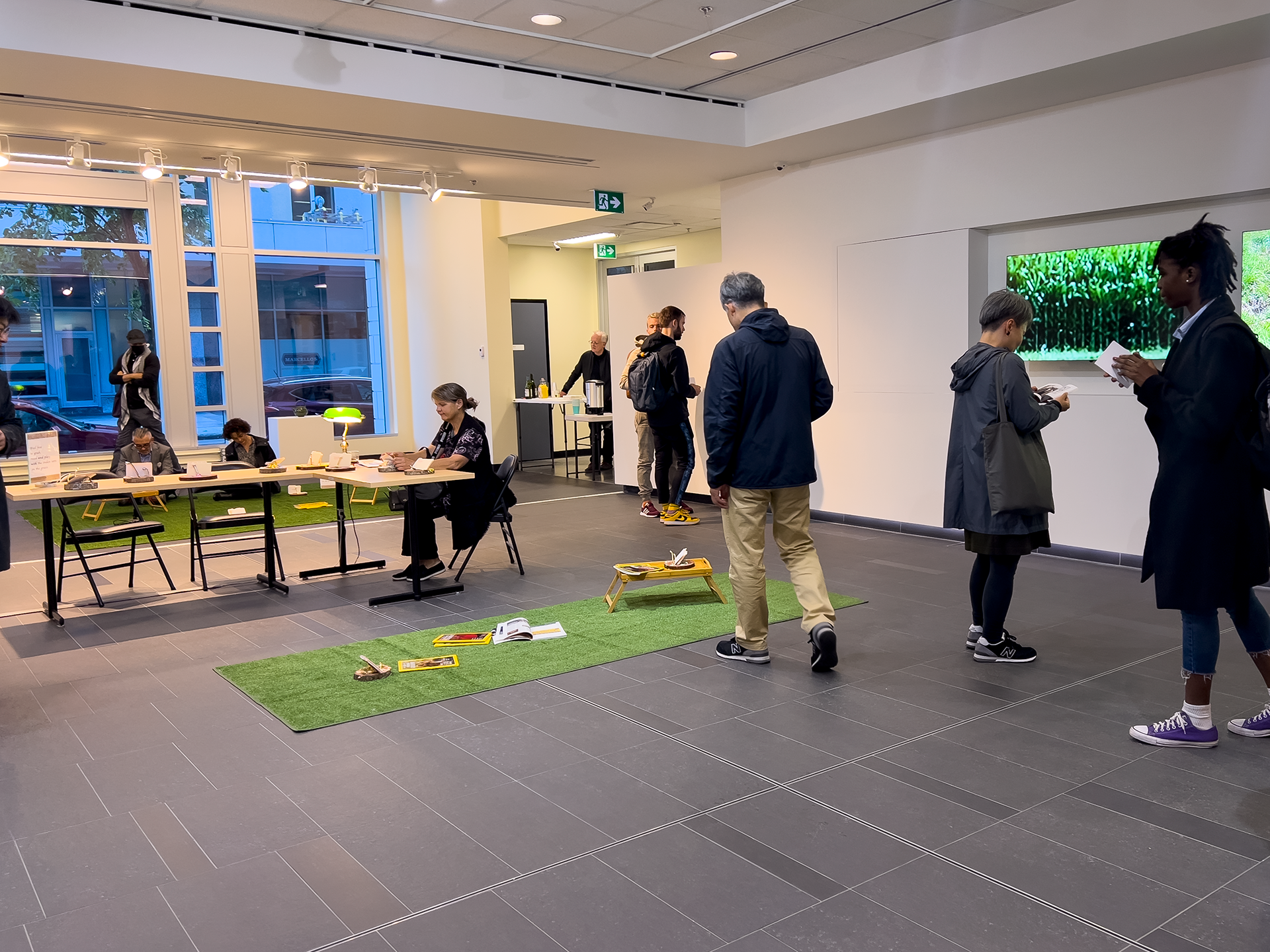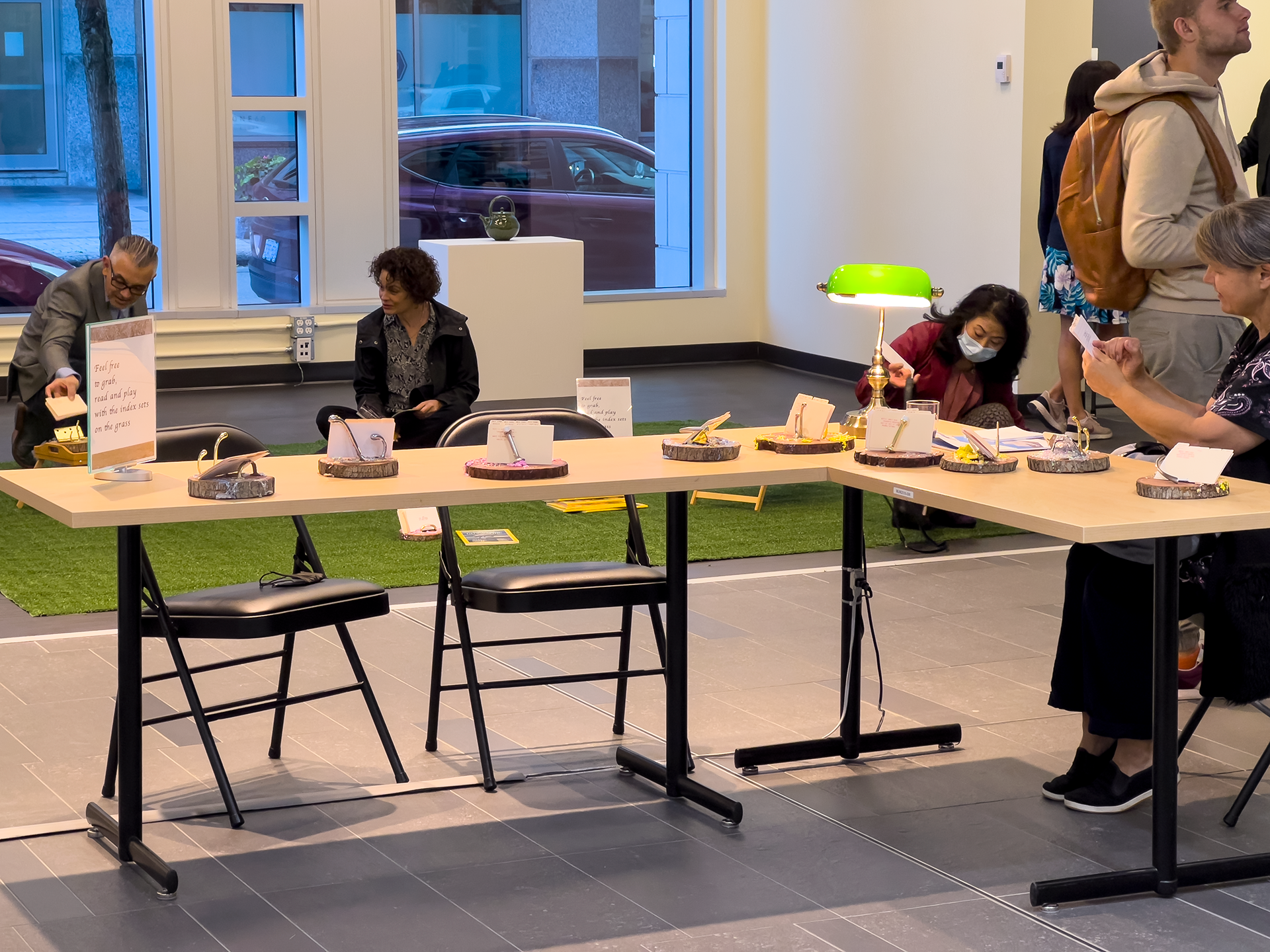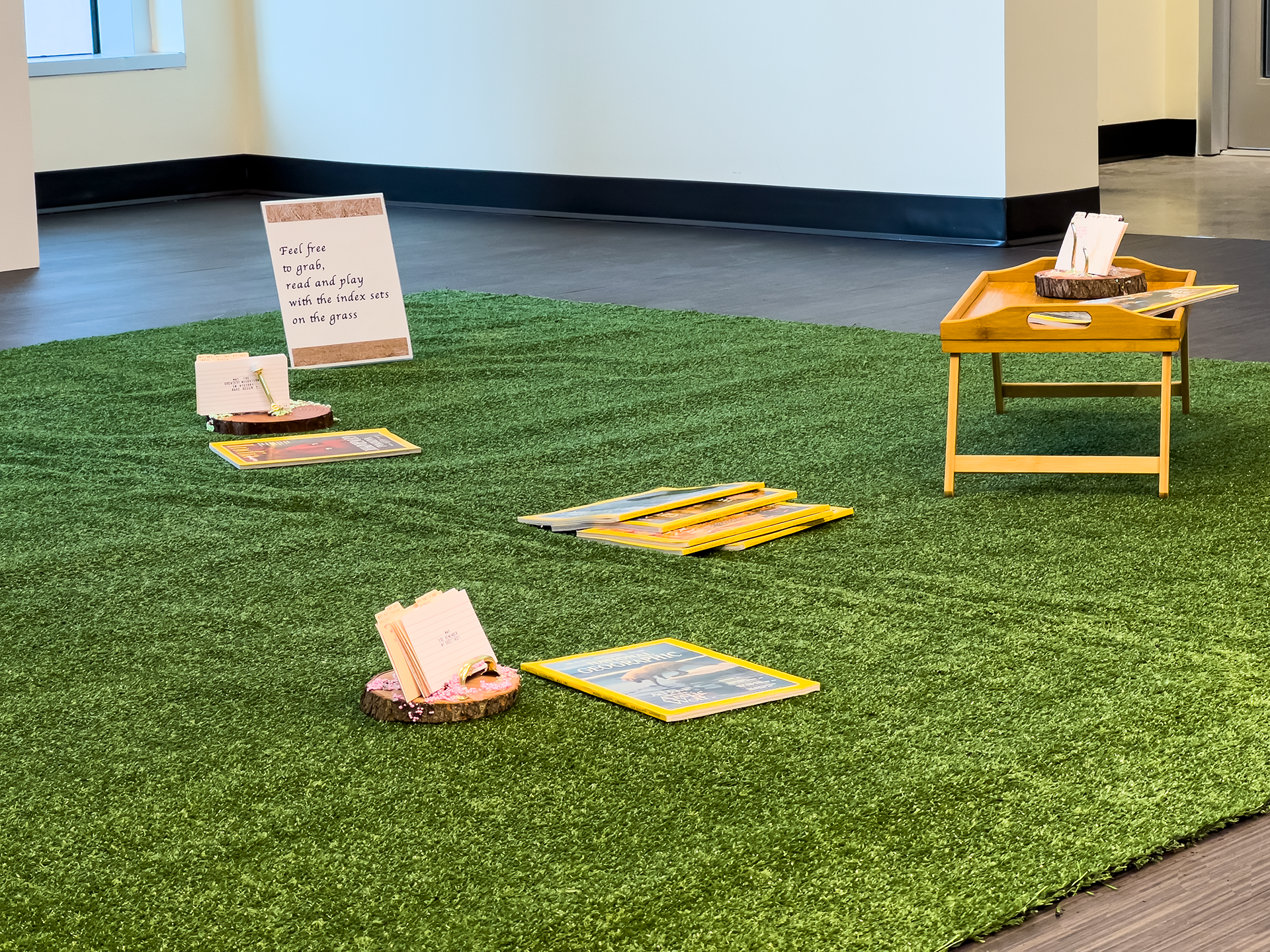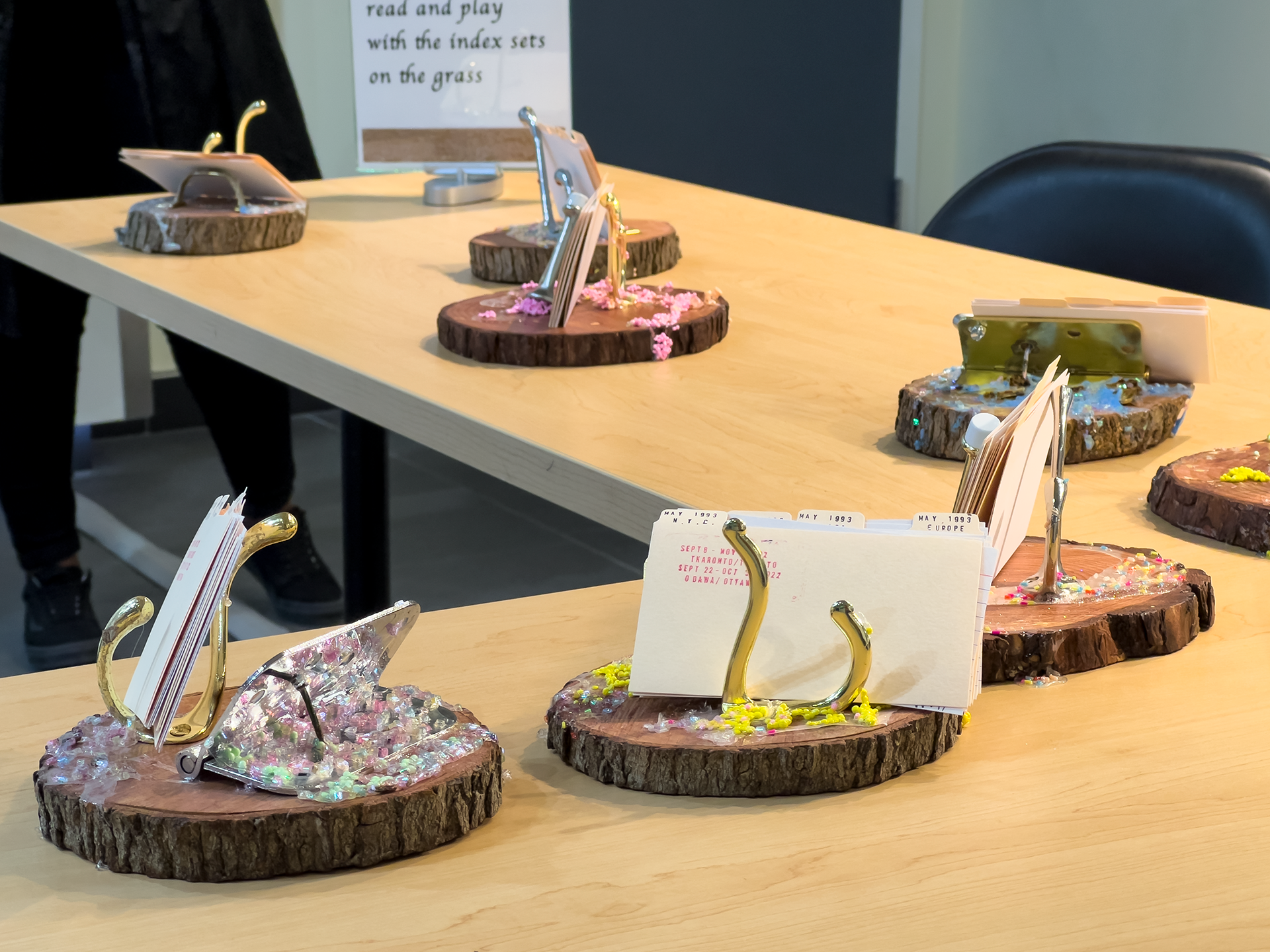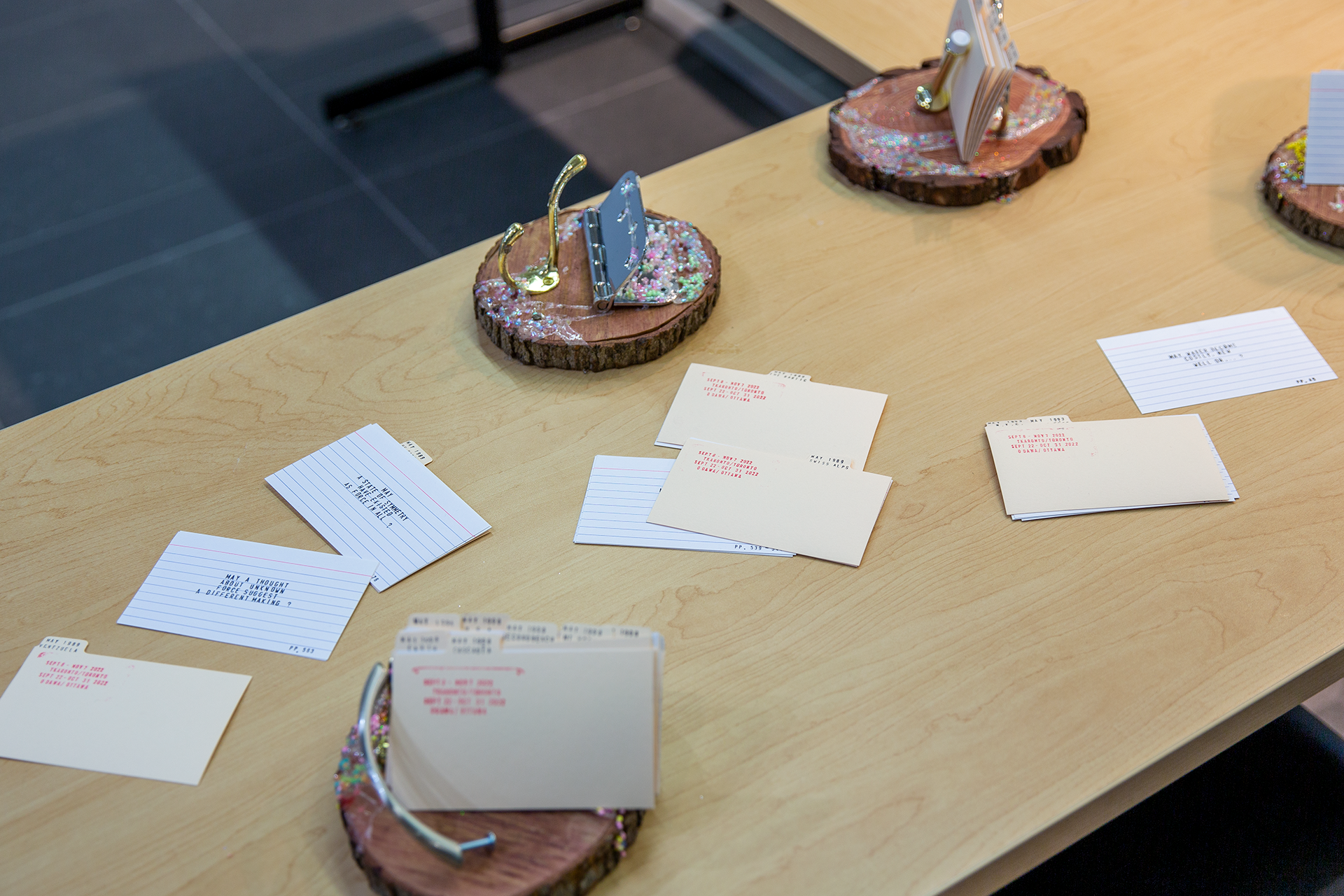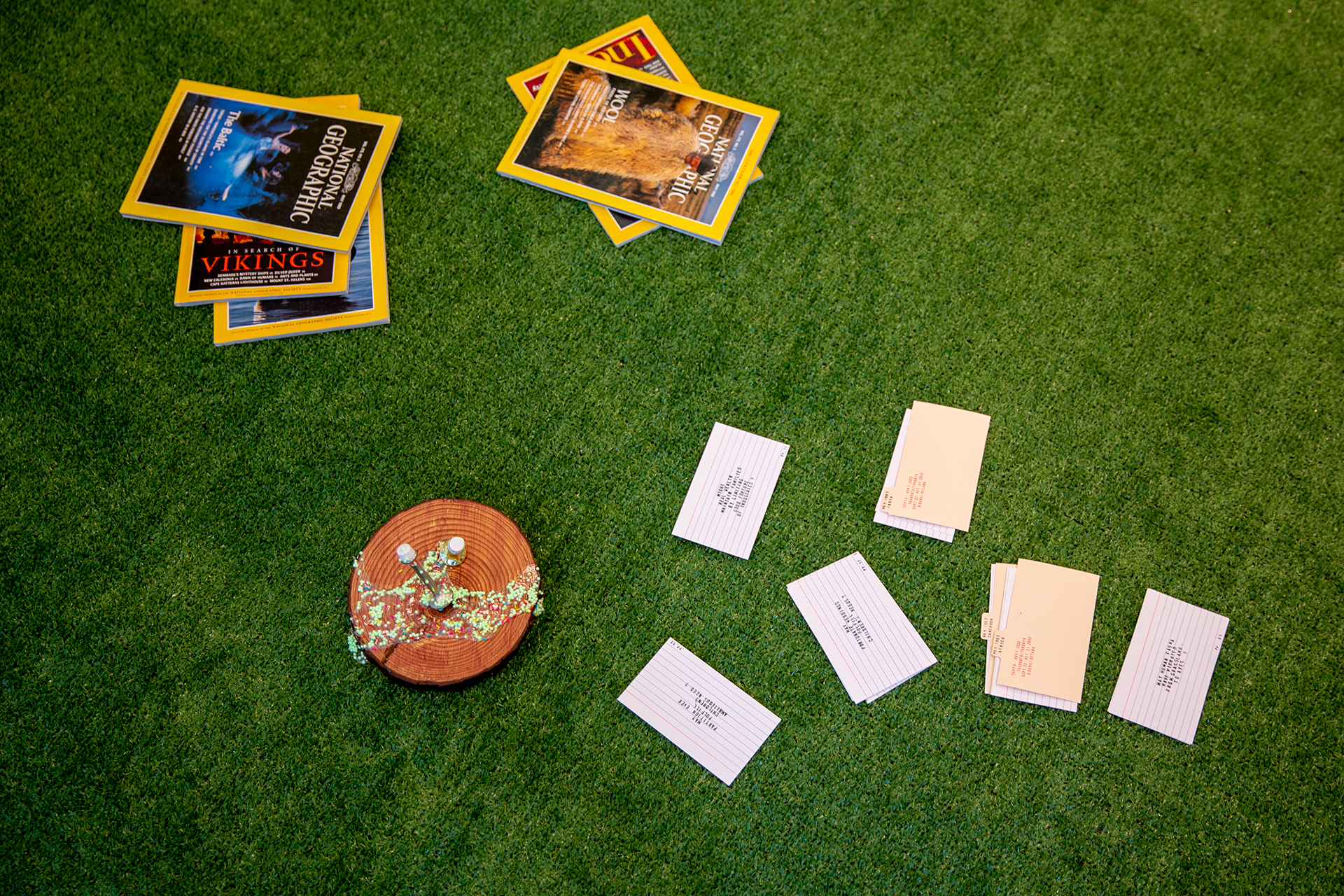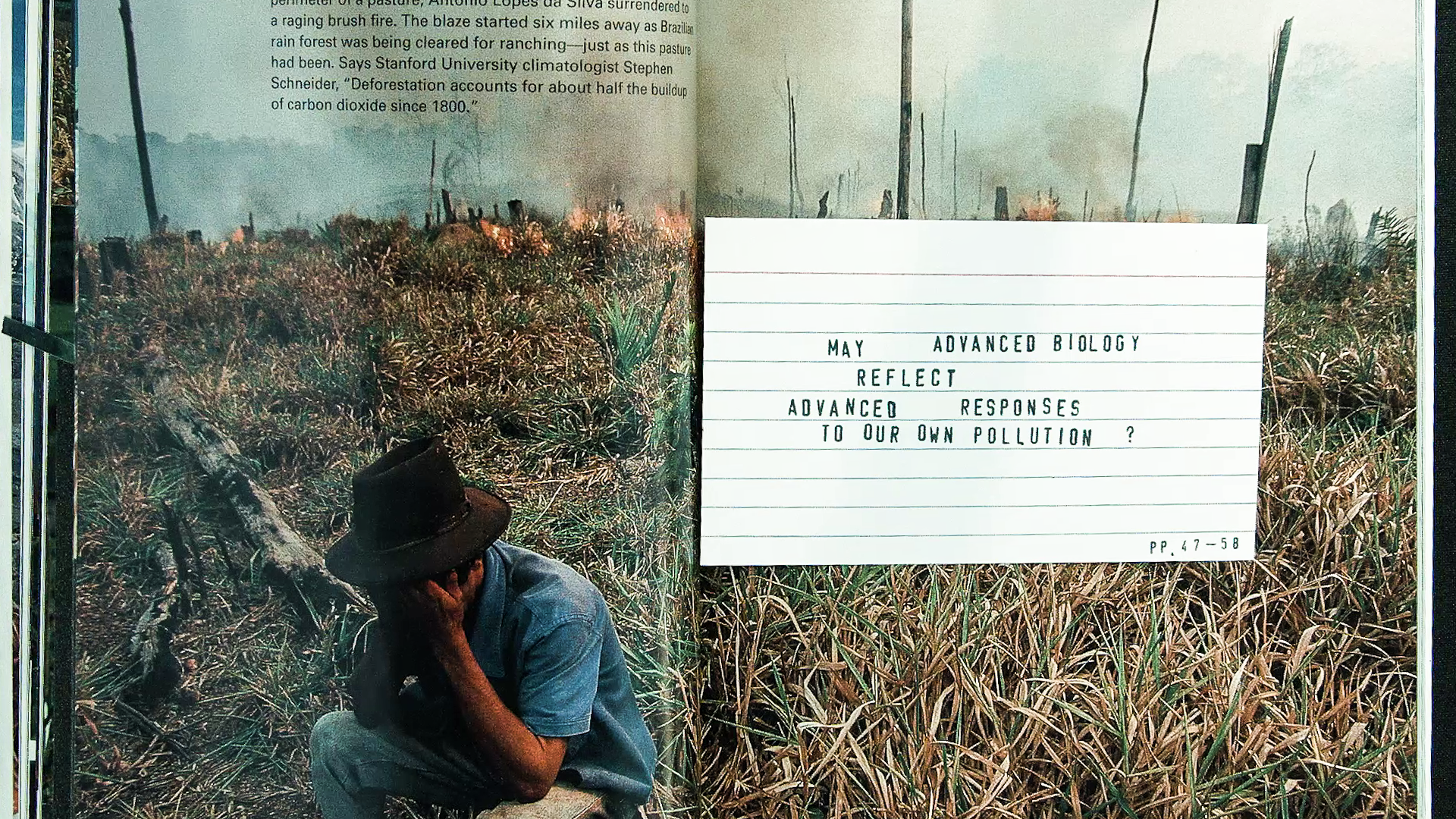Proposition 2: Index
2020-2022. Fifteen National Geographic Magazines (published every May from 1986-2000), index cards (3”x5”), index label cards (3”x5”), glycerol, a stain glass table (39.37”x78.74”), chairs, playfoam, spark colour, borax, glue, wood butter, wood (diameter: 2.2”), copper, metal, a lamp (10.5”x8.6”x14.75”) & audience's participation. Variable dimensions.
Commissioned by the Korean Cultural Center Canada and partially funded by the Ontario Arts Council.
Exhibitions
22 September - 31 October 2022. Entanglements (Tea, Maybe), Funded by and presented at Korean Cultural Centre, Ottawa, Canada.
9 September - 7 November 2022. Trinity Square Video, Toronto, Canada.
22 September - 31 October 2022. Entanglements (Tea, Maybe), Funded by and presented at Korean Cultural Centre, Ottawa, Canada.
9 September - 7 November 2022. Trinity Square Video, Toronto, Canada.

